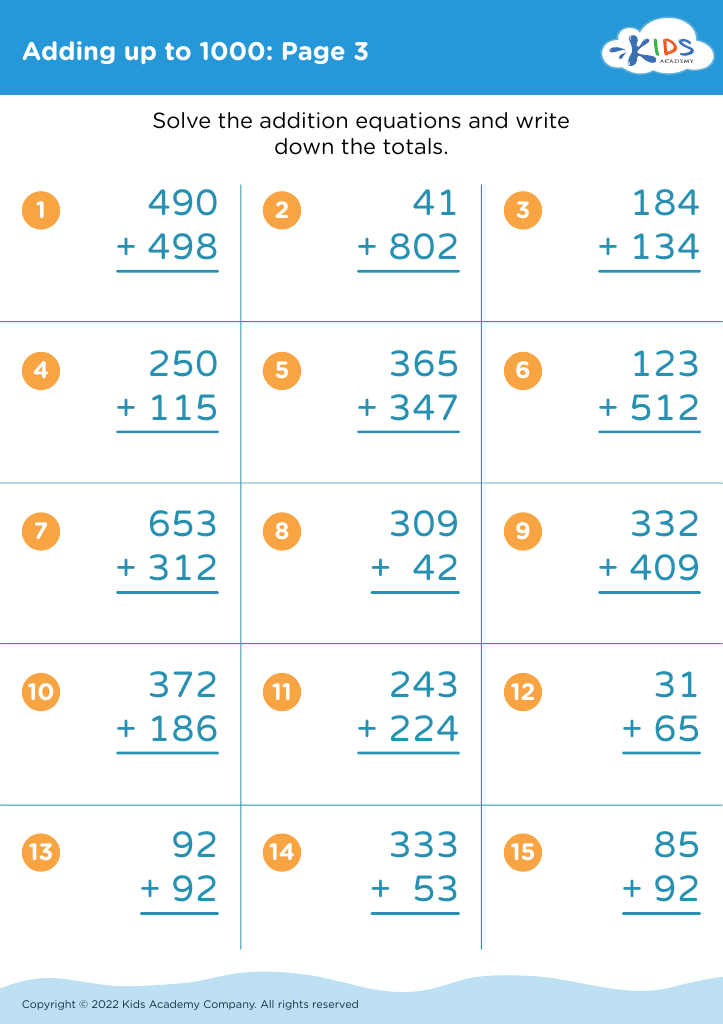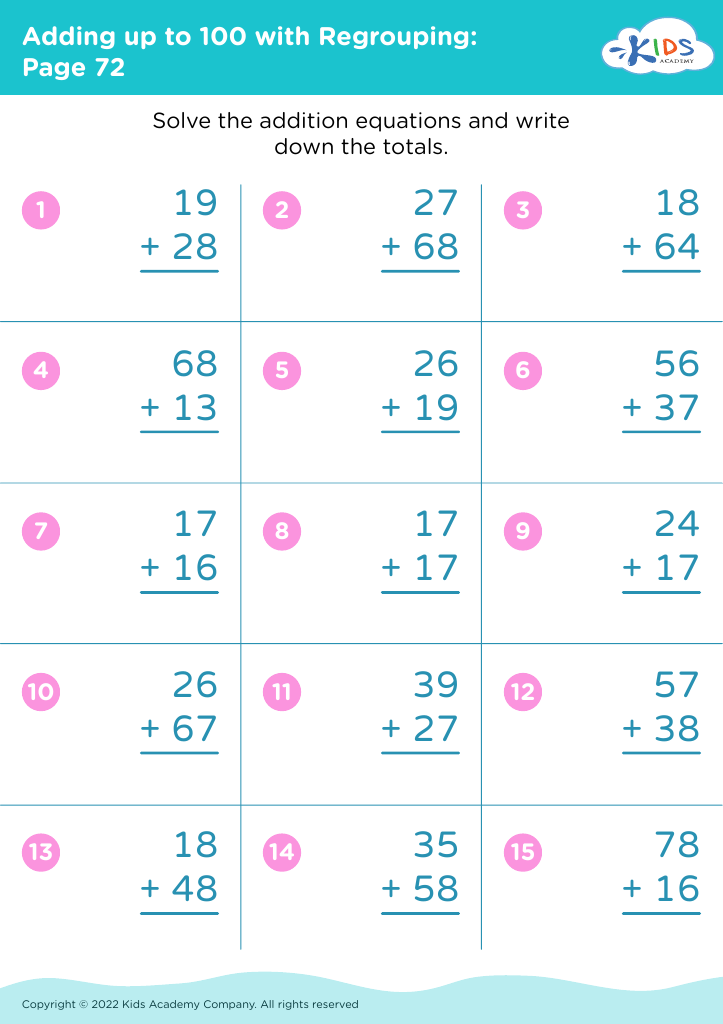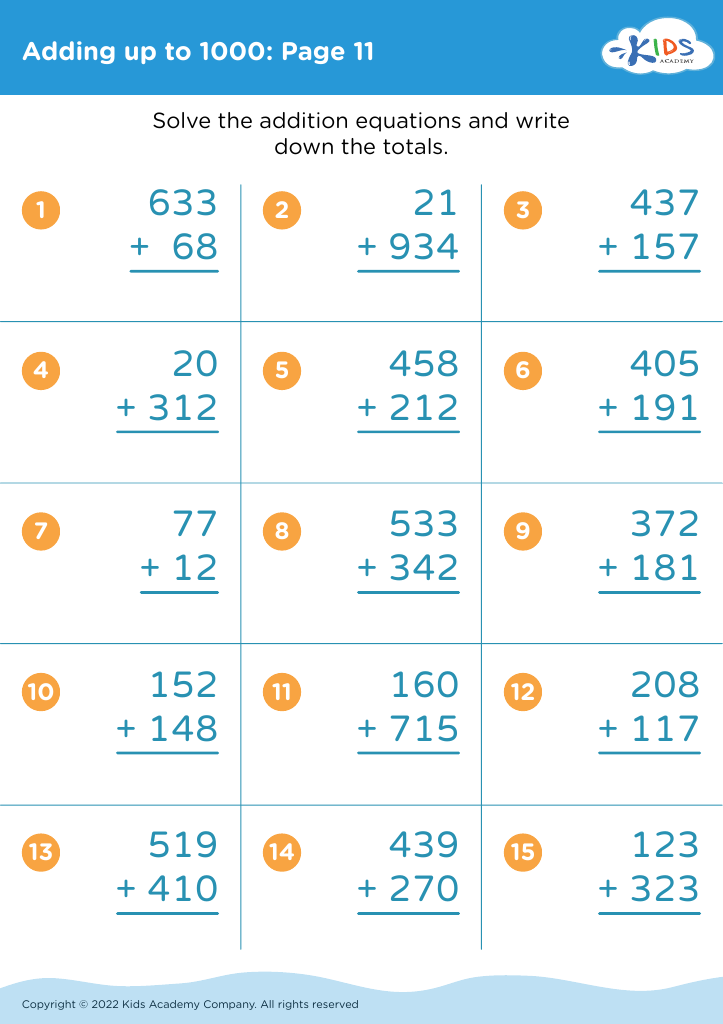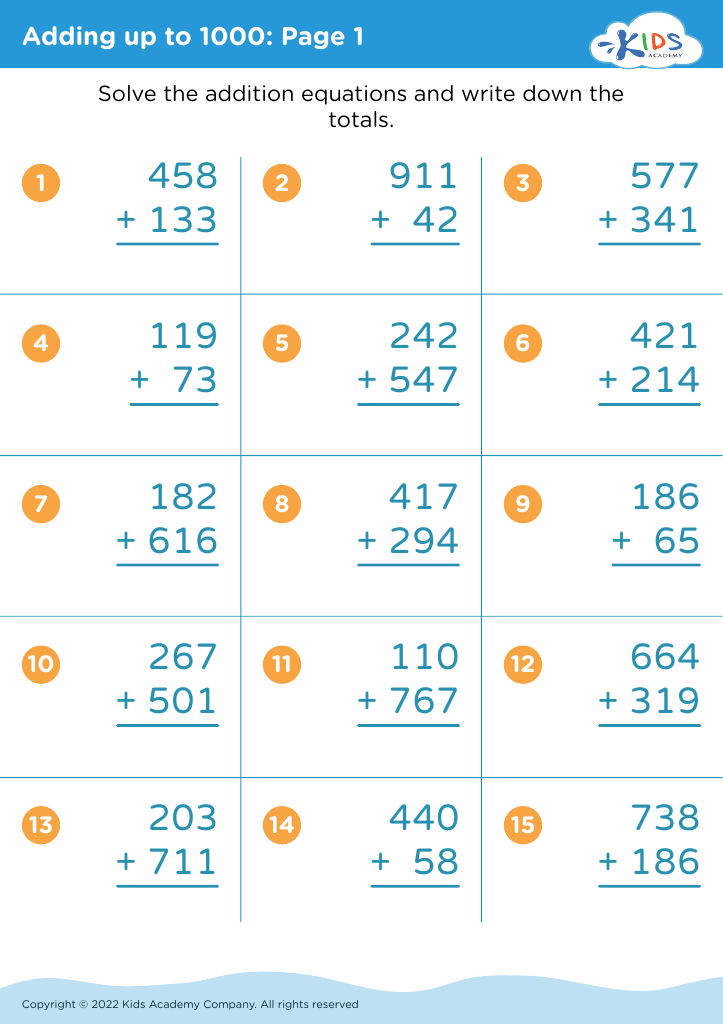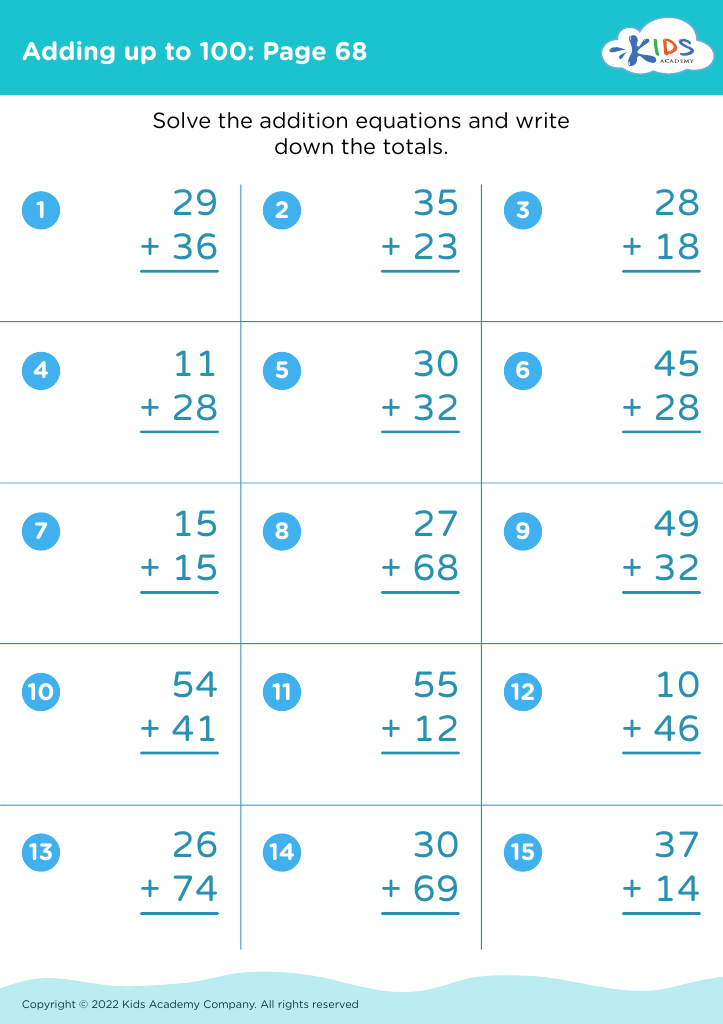Understand multiplication Worksheets for Ages 3-9
6 filtered results
-
From - To
Understand multiplication easily with our engaging worksheets tailored for ages 3-9! Kids Academy offers top-quality printable worksheets designed to help young learners grasp the basics of multiplication through fun and interactive activities. Our resources simplify multiplication concepts, promote critical thinking, and build strong foundational math skills. From counting objects to simple multiplication problems, these worksheets make learning enjoyable and accessible. Perfect for classroom supplementation or daily practice at home, our expertly crafted exercises ensure kids develop confidence and proficiency in multiplication. Visit us to empower your child's learning journey with effective, age-appropriate worksheets that energize and educate!
Understanding multiplication at an early age is foundational for a child's overall mathematical development. For children aged 3-9, establishing a strong grasp of multiplication concepts can have lasting benefits in their academic journey and daily life.
First and foremost, multiplication serves as a building block for more complex mathematical concepts. It is crucial for understanding division, fractions, and algebraic thinking, which are all essential components of higher-level math curricula. Without a solid foundation in multiplication, children might struggle to grasp these advanced topics, potentially hindering their progress in mathematics as a whole.
Moreover, early exposure to multiplication helps children develop critical thinking and problem-solving skills. Through activities like grouping objects and repeated addition, children engage in pattern recognition and logical reasoning, which are vital cognitive skills that extend beyond math.
Additionally, practical applications of multiplication permeate everyday life. Whether it’s calculating quantities, budgeting, or understanding time, multiplication simplifies various real-world tasks. By mastering multiplication early, children gain confidence and independence in handling practical situations like these.
Finally, early success in multiplication can foster a positive attitude towards mathematics. When children enjoy and feel competent in math, they are more likely to persevere through challenges and develop a lifelong appreciation for the subject.
In summary, caring about children’s understanding of multiplication sets the stage for academic success, enhances cognitive development, supports practical life skills, and promotes a positive outlook on learning.


